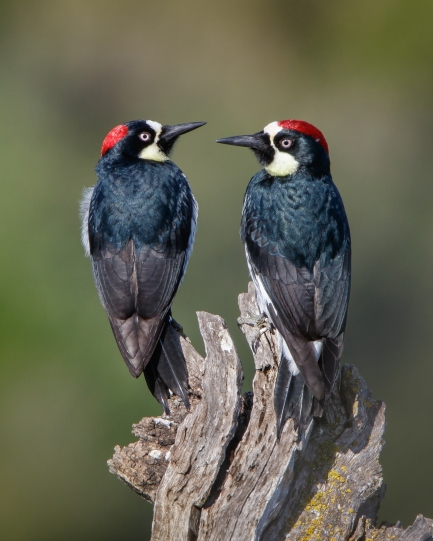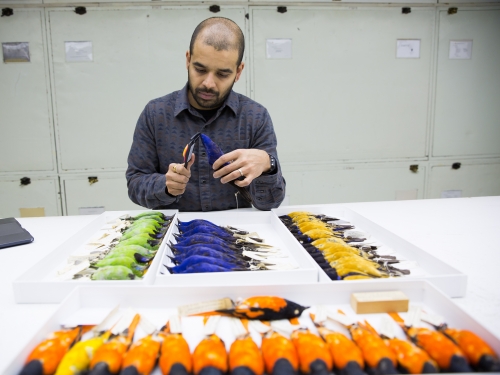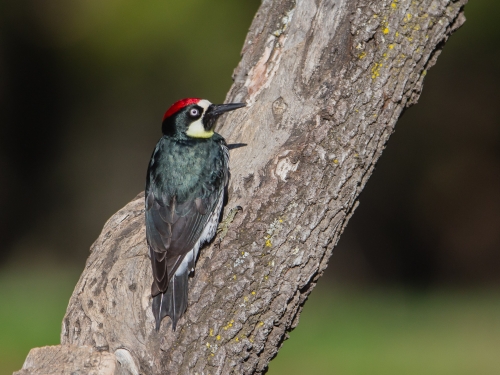Female (left) and male (right) acorn woodpeckers.
A new study published today in the journal Proceedings of the Royal Society B suggests that even complex cooperative breeding strategies may offer direct evolutionary benefits over an animal’s lifetime, and perhaps offers clues into how social behavior first evolved in humans and other animals.
The data underpinning this research spans more than 40 years and tracks 499 individual birds over their entire lifetimes at the 2,500-acre Hastings Natural History Reservation in the Carmel Valley along California’s central coast, where a rotating cast of some 150 scientists and interns has been observing acorn woodpeckers since 1968. Researchers working at the Hastings Reserve recorded each bird’s reproductive output from their first attempt to their last along with information including territory quality, group composition, social standing and genetic data linking parents to their offspring for birds hatched between 1984 and 2006.








